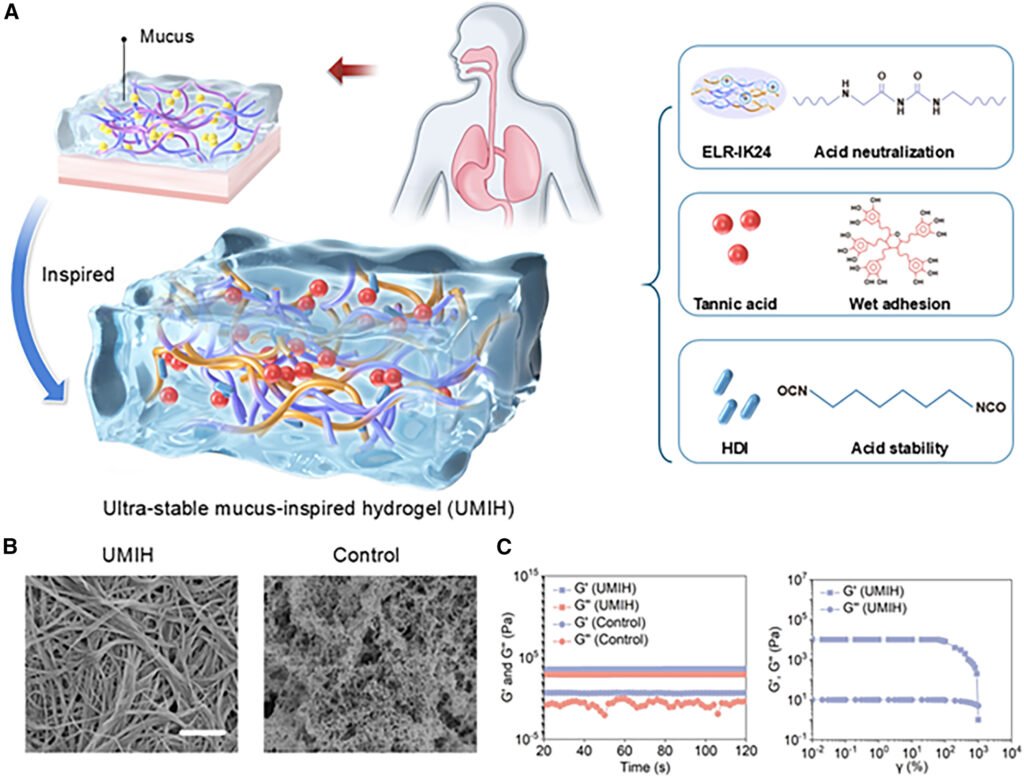Researchers from Hong Kong Polytechnic University have developed an acid-resistant artificial mucus that significantly improves healing of gastric wounds in animal models, offering a promising new approach for treating ulcers and other stomach injuries. The synthetic gel mimics the protective properties of natural mucus while remaining stable in the highly acidic environment of the stomach.
The stomach’s lining is protected by a layer of mucus that shields tissue from digestive acids and enzymes. When this barrier is compromised—due to ulcers, infections, or surgery—healing becomes difficult because the harsh conditions interfere with tissue regeneration. Existing treatments often rely on acid-suppressing drugs, which can have side effects and are not always effective.
To address this, scientists created a bioengineered mucus-like gel that resists degradation in low pH environments. The material forms a physical barrier over wounds, protecting them from acid while promoting cell growth and tissue repair. In preclinical studies using animal models, the gel accelerated healing and reduced inflammation compared to untreated controls.
The artificial mucus is made from biocompatible polymers that replicate the viscoelastic and adhesive properties of natural mucus. It can be applied directly to the stomach lining and remains intact for extended periods, even under continuous exposure to gastric acid. Researchers observed improved epithelial regeneration and reduced ulcer size in treated animals.
This innovation could lead to new therapies for peptic ulcers, post-surgical healing, and other gastrointestinal injuries. It may also benefit patients who cannot tolerate acid-suppressing medications or who need localized treatment without systemic effects.
The study highlights the potential of biomimetic materials in regenerative medicine, especially in environments where traditional therapies struggle. By replicating the body’s own protective systems, artificial mucus offers a safer, more targeted way to support healing in one of the most challenging areas of the digestive tract.
Press Release: Acid-resistant artificial mucus improves gastric wound healing in animals
Abstract in Cell Reports Physical Science: Mucus-inspired hydrogels with protonation-driven adhesion for extreme acidic conditions

